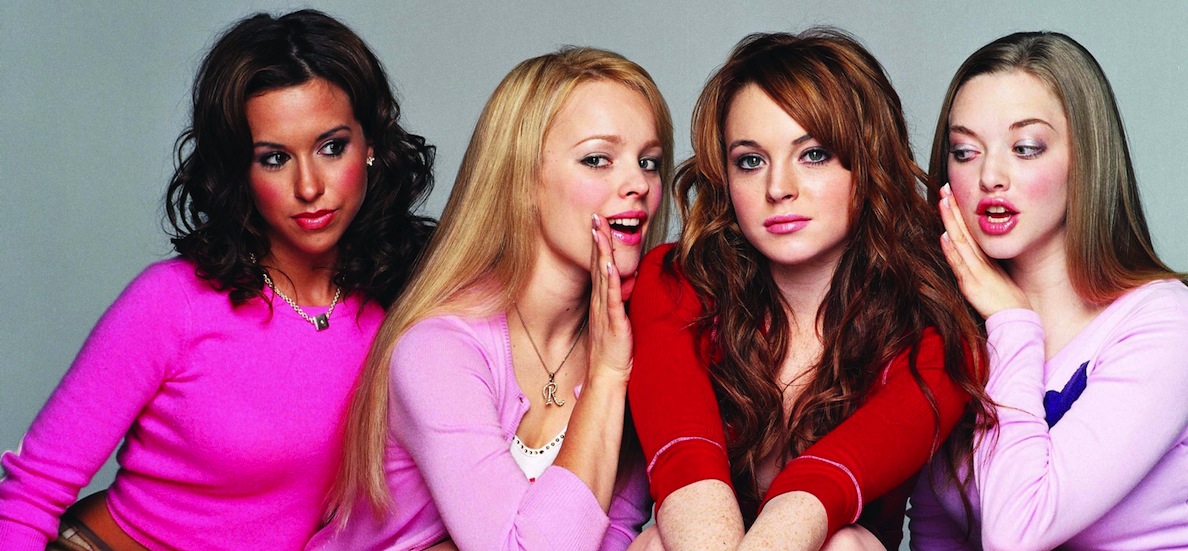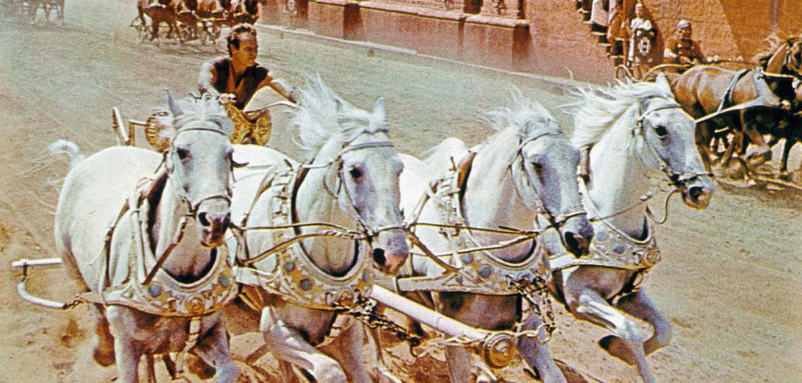
Ten years ago, no one had any idea what an iPhone was. Bryan Cranston was still playing a sitcom father on Malcolm in the Middle, and the publishing industry was untouched by deadly teenage dystopias.
Few people then could have predicted that a run-of-the mill teen film, focused on three “mean girls,” would explode with cultural impact the way it did. Yet, 10 years later, it stands out as one of the most culturally resonant high school movies of all time.
While “fetch” might not have happened, the cult following of Mean Girls definitely did.
What is it that makes this film resonate with people enough to have them still quoting lines, a decade later? Maybe it’s the fact that the film manages to create not just characters, but themes that almost every person, young and not-so-young, can relate to. After all, if we’re honest (and, please note, there are some spoilers below) …
Everyone Is Terrified of Hearing, “You Can’t Sit With Us.”
There were very specific rules to being able to sit with the “Plastics” at lunch. Jeans or track pants were only allowed on Fridays, you couldn’t wear a tank top two days in a row, you wore pink on Wednesdays and ponytails were only allowed once a week.
We may scoff at the superficiality of what made the Plastics “cool” but that doesn’t mean we haven’t succumbed to other arbitrary rules to fit in. Even long after high school, wanting a place at the table (be it in school, college, work or even church) can be a hugely motivating factor in what we choose to wear, do, say or act. In order to fit in, we often can find ourselves doing or saying things we never thought we would—things we regret when we ultimately realize …
The “Uncool” Kids are Actually The Coolest.
When I first saw Mean Girls, I was in my freshmen year of college, barely out of high school. I remember enjoying the movie, but secretly feeling a bit down because I knew if I went to school with the Plastics, they’d never invite me to sit with them.
The movie solidified my realization that I was “uncool.” But when I re-watched it years later, I found myself relating much more to the outsiders Janis (Lizzy Caplan) and Damian (Daniel Franzese), who, truth be told, were far more interesting and fun than Regina (Rachel McAdams) and her cohorts. They had personality, humor, and the best one-liners of the movie (“you go Glen Coco!”)
Many teen movies feature the tired trope of the “uncool kids” learning how to become cool kids (see She’s All That.) Mean Girls flipped the equation.
The further I got from high school the more I grew to not only accept my “uncoolness,” but embrace it. I realized my identity wasn’t based on fleeting, shallow things like having a perfect body or the perfect clique. I hadn’t actually been doomed to the hierarchy that high school creates, which often feels inescapable, because…
High School Doesn’t Reflect the Real World
While most movies about high school tend to treat the teenage stars as living in the absolute prime of their lives—while the teachers are old, pathetic, miserable and secretly jealous of their students—Mean Girls is different.
What made Mean Girls so great was its unflinching portrayal of how meaningless popularity is in high school. It took its high school subjects seriously by not inflating the value of high school’s social hierarchy.
For the majority of people, once you get outside of high school, personality matters more. Personality is what gets you friends and stable relationships. That’s not to say that only the dorky kids in high school turn into well-rounded adults. You can absolutely be rich, pretty and also have a great personality, since…
The World Isn’t Black and White
One of the best things about Mean Girls was that it didn’t end with Regina George getting hit by a bus. Most movies would have seen this as a fitting end—the evil antagonist who made the hero miserable gets what’s coming to her. But where the writer, a then barely famous SNL alum named Tina Fey, showed her brilliance is in giving Regina a bit of redemption.
She got to find an outlet that replaced her verbal assaults with organized sports.
Because of this, we got a movie whose message wasn’t, “Plastics are evil” but, “high school is hard.”
Fitting in is hard. Making friends, moving to a new place, figuring out where you belong—all of these things are difficult, and all of them were covered with nuance and grace by Mean Girls.
While high school might make it seem like everyone fits into perfect little boxes, “in” or “out,” in reality, people can’t so easily be pegged. In the real world, there aren’t just villains and good guys, there are people who often play both roles at different times in their lives.
It’s fully possible that if Regina George was real, she’d grow up to regret how terrible she was in high school, and become a stable woman. Or she could turn into an even worse adult. You can’t know what the future holds when you’re 18.
Unlike many movies about high school, Mean Girls recognized this. Maybe that’s why, 10 years later, the Janices, Cadys, and Ms. Norburys of the world still happily enjoy this film—one that anyone who has ever struggled to fit in, or “stay in” can relate to.






















